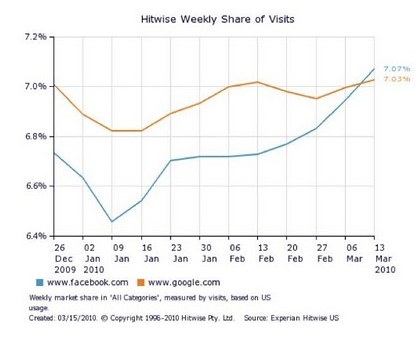Flip through the weekend newspaper in your city and pay close
attention to the condo advertisements. You will no doubt see the same thing time and time again – diagrams, numbers and renderings on ads full of technical dry information. Most of it is totally boring.
95% of the realtor ads in the newspaper you will find a large photograph that features the exterior image of a building. They are trying to connect with us logically, when what they need to do is connect with us emotionally.
Selling on emotion is the key Look at some of the great car companies who do not sell us on horsepower or the steering, but try to sell us on the feeling of driving their car. If they want to sell a convertible they will create an ad in one of those beautiful spots in the word where the driver is whipping around corners with the top down, the sun is shining brightly and the driver’s hair is blowing in the breeze.
It’s a classic advertising technique – don’t advertise the car, advertise how they will feel using the car. The same thing happens with beer, razor or cologne ads that make it seem as if by using their product, gorgeous women will fall at your feet or your life will improve in some unrealistic way.
Or maybe it’s a shower gel that is going to transport you a thousand
miles from all of your stress, or a diet soda that will make you feel 15 years younger. How do people feel when they use these products? They feel great.
Therefore, especially in real estate, the advertising approach should sell the feeling of using the product, rather than the nuts and bolts of the product itself.
- About us
- Services
- Projects
- Coaching
-
News
Recent Posts
Read MoreTopics: real estate marketing, buy a condo, sell the lifestyle, developer's guide, emotional marketing
One size does not fit all – not in t‐shirts, not in lattes and certainly not in real estate.Read More
As a result one of the biggest mistakes developers make is to
use one brand statement to try to reach everybody. Those days have been replaced by highly targeted, individual marketing where all of your prospective buyers receive a marketing message that is specifically targeted to them.
If you have three different target groups, start with three different website addresses or URLs that focus the information on that particular group.
- Investors: want to know about the commissions, contracts and closings. The site should answer all of their financial questions about the rental market
- First time buyers on the other hand want to know that the area is young, sexy and hip. Their website should focus on these details and fresh imagery that would get their attention.
- The empty Nesters are usually looking for a lot of floor space, storage and two or three car garages. They will usually be less interested in financing as they will be selling another property at the same time and buying their new home with cash
Topics: direct marketing, developer's guide, real estate, marketing, Ebooks, Target Marketing
Read More
When potential buyers see a line of people waiting at one of the location and not at the other, they assume the busy one is superior, and then they follow the crowd.
It is a phenomenon known by many names ‐ pack mentality, peer pressure, following the herd – and it plays an absolutely critical role in selling real estate.
You can make the herd mentality work for you:
The idea is to bring together a group of qualified prospects interested in the same property, thus creating a sense of urgency.
When buyers compete for real estate, almost like in an auction setting, the fear of loss will often compel him or her to buy much faster. Creating urgency creates a competitive environment that helps property sell.
Considering having a launch party?
- Think about hosting in a smaller venue than you might actually need. That way potential buyers will feel the squeeze, both psychologically and physically, when surrounded by a group of people all interested in the same thing.
Topics: real estate marketing, real estate, marketing, launch event
Read MoreExpecting people to buy a condo on their first visit to a sales office is like proposing marriage on a first date and expecting the person to say yes.
Only 1% of people who walk into a sales office will make that big purchase commitment in the first visit – which means that 99% of the time your potential buyers are slipping away. They come in, hear a pitch and then they leave.
The sales process cannot end there. Studies have shown that it takes between 6 and 17 touch points to convert a prospect into a buyer, depending on market conditions. Up to 17 touch points!
How can you create an effective TouchPoint plan?
Begin by creating an actual plan that covers off at least 17 different
ways that a potential buyer’s interest can be maintained.Topics: real estate marketing, developer's guide, Ebooks, Touchpoin Plan, Building Relationships, Increasing Sales
Read MoreIt is time to familiarize yourself with its true power of Google in the world of real estate marketing. Google has transformed into more than just a search engine. Today, you can buy much of your traditional media through Google, including radio and television spots. In many ways Google is a virtual one‐stop shop for advertising dollars.
However because most of us do not have time to become Google experts I recommend hiring one. Hiring a skilled Google expert is probably the best investment you can make – and it is an investment that should be made, considering the fact that the Internet drives 80 to 90% of all real estate sales, despite being allocated only 2% of the average marketing budget. A great way to lower your cost per lead
Let me give you an example of how Google marketing can pay off:
Lets say your price per lead is $660 from all traditional print marketing Your online cost per lead can be in the $100 range – but of all of our online advertising, the least expensive and most valuable investment was Google. It cost just $13 per lead.
Today every marketing initiate you do should drive people to the one, central marketing hub you have – your website.Topics: seo, Google, real estate marketing, cost per lead, blogging, developer's guide, facebook, twitter, Ebooks
Read MoreThere is no denying it -The pace of change in our modern world is dizzying. Just close your eyes and think about life just ten years ago and consider how different things were then. A decade ago nobody had high speed Internet or HTML interfaces. There were no iPods, iPhones or BlackBerrys. Google was just coming out of Stanford and had yet to revolutionize the way the world shares access to information.
Back then nobody was tweeting or had a Facebook profile. And although cell phones were available, they were not everywhere the way they are now, and had only a fraction of their current capabilities. Ten years ago these tools were literally not available and certainly were not an integral part of the real estate marketing landscape. They are most certainly available now – and the challenge is that most developers are still not even using them.
The painful truth is that what sold your property a decade ago is terribly outdated now. Today, smart, skilled builders and developers are trying to market everything from multi‐million dollar developments to singlefamily residences using antiquated methods from the dinosaur age.
It is almost life altering when we present our results – our clients cannot believe that the things they thought were working best were not working at all, and the things they thought worked the least were actually generating 80% of their current business.Topics: real estate marketing, future of social media, developer's guide, Ebooks
Read MoreDemand for Condominiums among baby boomers has led boomers flocking to social media tools in staggering numbers.
A recent article in Zoomer Canada cites statistics that show that people over the age of 65 are adopting Facebook faster than any other age bracket. Further, the largest demographic cohort on Twitter is what we call the junior baby boomers - those aged 35 to 49. According to another survey, nearly half of Canadian boomers now utilize at least one social networking tool, and the number is growing rapidly.
The boomers truly are never a group to do things halfway, are they?
As the Zoomer article points out, the opportunity afforded by the boomers' increasing engagement with social media is huge for anyone hoping to market products (like, say, condos) to the group:Topics: condo investments, social media, facebook, Canada, Baby Boomers
Read MoreWhen I talk with most marketers today about how they generate leads and fill the top of their sales funnel, most say trade shows, seminar series, email blasts to purchased lists, internal cold calling, outsourced telemarketing, and advertising. I call these methods "outbound marketing" where a marketer pushes his message out far and wide hoping that it resonates with that needle in the haystack.
Topics: social media blog, inbound marketing, social media, facebook, social media marketing
Your Email to Subscribe
Archives
- February 2016 (56)
- August 2016 (43)
- November 2014 (36)
- January 2016 (33)
- September 2016 (31)
- October 2016 (31)
- December 2011 (30)
- November 2012 (29)
- December 2014 (26)
- August 2015 (25)
- July 2013 (24)
- September 2015 (24)
- May 2011 (20)
- November 2011 (20)
- June 2016 (20)
- January 2011 (19)
- September 2011 (19)
- June 2012 (19)
- October 2015 (19)
- March 2013 (18)
- April 2013 (18)
- January 2013 (17)
- July 2016 (17)
- January 2012 (16)
- February 2012 (15)
- July 2015 (14)
- November 2016 (14)
- November 2010 (13)
- December 2010 (13)
- June 2011 (13)
- October 2011 (12)
- December 2012 (12)
- February 2013 (12)
- January 2015 (12)
- January 2017 (12)
- May 2013 (11)
- August 2011 (10)
- March 2012 (10)
- June 2013 (10)
- December 2016 (10)
- October 2014 (9)
- April 2011 (8)
- May 2012 (8)
- September 2013 (8)
- July 2012 (7)
- December 2013 (7)
- May 2016 (7)
- February 2011 (5)
- July 2011 (5)
- April 2015 (5)
- March 2016 (5)
- November 2017 (5)
- May 2019 (5)
- July 2010 (4)
- March 2011 (4)
- August 2013 (4)
- February 2015 (4)
- August 2010 (3)
- September 2010 (3)
- August 2012 (3)
- November 2013 (3)
- February 2014 (3)
- May 2015 (3)
- October 2010 (2)
- January 2014 (2)
- July 2014 (2)
- March 2015 (2)
- December 2017 (2)
- April 2012 (1)
- May 2014 (1)
- November 2015 (1)
- March 2017 (1)
- July 2017 (1)
- February 2018 (1)
- October 2021 (1)










